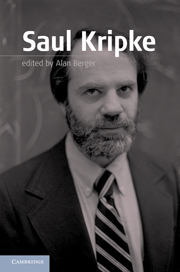Crossref Citations
This Book has been
cited by the following publications. This list is generated based on data provided by Crossref.
2012.
Books Received (January 2012).
Philosophy,
Vol. 87,
Issue. 1,
p.
151.
2012.
Livres reçus.
Canadian Journal of Linguistics/Revue canadienne de linguistique,
Vol. 57,
Issue. 3,
p.
491.
Balagangadhara, S. N.
2014.
On the Dark Side of the “Secular”: Is the Religious-Secular Distinction a Binary?.
Numen,
Vol. 61,
Issue. 1,
p.
33.
Tahko, Tuomas E.
2015.
Natural Kind Essentialism Revisited.
Mind,
Vol. 124,
Issue. 495,
p.
795.
Buechner, Jeff
2018.
Two New Philosophical Problems for Robo-Ethics.
Information,
Vol. 9,
Issue. 10,
p.
256.
Sijuwade, Joshua Reginald
2021.
Love and the Necessity of the Trinity: An A Posteriori Argument.
Religions,
Vol. 12,
Issue. 11,
p.
990.
Lichtenstein, David
2023.
The Reflexive Function of Psychoanalytic Interpretation.
Journal of the American Psychoanalytic Association,
Vol. 71,
Issue. 6,
p.
1107.
Floyd, Juliet
2023.
“Surveyability” in Hilbert, Wittgenstein and Turing.
Philosophies,
Vol. 8,
Issue. 1,
p.
6.



